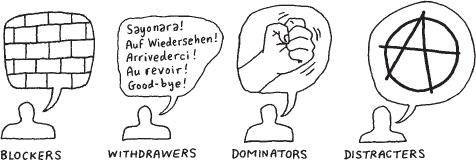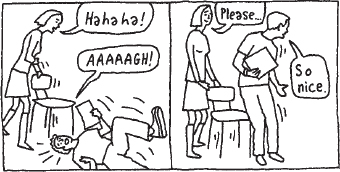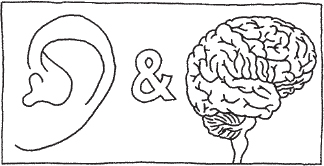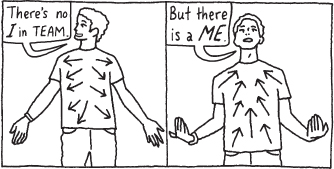Tips for Participating in a Small Group
Printed Page 637
In addition to fulfilling task- and maintenance-oriented roles, you can improve your effectiveness at group participation by applying the following practices.

Prepare for Group Meetings. If an agenda has been distributed for an upcoming meeting, think about the topics under consideration before you gather with other group members. Keep track of any commitments you made for the meeting (such as researching the answer to a question or bringing your laptop), and be sure to fulfill them. If you are planning to disseminate information to group members, be sure to iron out any wrinkles in your presentation beforehand.


Treat Other Members Courteously. Courtesy begins with arriving at a group meeting on time (or at least informing the group if you will be late). Turn off your cell phone unless you are expecting a call that will help the group conduct its business. During the discussion, treat other members with respect, even when you disagree with their views. If you do disagree with other members, be sure to focus on the issue at hand rather than on personalities. For example, if someone proposes an idea you find questionable, don’t say, “I’m not sure you have the patience to carry out this idea.” Instead, try to learn more, perhaps by asking, “What’s your experience in doing this sort of thing? Can you tell us more about the kinds of challenges we can expect?”

Listen Interactively. Inattention between members can cause tension in a group. Someone who doesn’t feel heard may turn a deaf ear to another person’s comments at later meetings. To avoid this problem, practice interactive listening (see chapter 4). As other members of your group share their ideas and comments, try to understand their viewpoints and show that you are listening. Ask for clarification if you need it, and make sure you understand a point before challenging it.

Participate, Don’t Dominate. To gain the benefit of diverse perspectives, a group needs contributions from each member. When you have a relevant point to make, share your idea. Your participation is particularly important when you have experience with a topic or a unique viewpoint that hasn’t been expressed.
At the same time, avoid monopolizing the discussion. If you find yourself speaking a disproportionate amount of the time, take a break and let other members contribute. You may even ask another member to chime in if it seems that he or she has an idea but is reluctant to speak.

Participate Authentically. A group functions at its best when members put diverse ideas and perspectives on the table. Therefore, be guided by honesty, not popularity, when considering problems and solutions. If you have an idea that you believe is important, don’t be afraid to mention it, even if you’re worried about how others might perceive it. If you have concerns about another member’s suggestion, explain your reservations to the group.
Be sure to balance candor with tact when questioning or challenging a colleague’s idea. Critique the idea, not the person, in a manner that makes your concern clear. For example, “I’m not sure our group can afford to rent that facility for our project,” not “Where in the world do you think we’re going to get the money for that?”
In the same vein, if others disagree with an idea you have presented, avoid overreacting. Instead, let others explain their position. If you disagree with what you’re hearing, explain your position calmly and rationally. If you listen to their criticism and find it to be valid, then be honest and acknowledge that you agree.

Fulfill Your Commitments. For a group to achieve its goals, it’s vital that members accept responsibility for performing certain tasks—both the ones assigned to them individually and the ones required of all participating members. For example, you may promise to research the cost of an item that your group needs to purchase, or perhaps you’ve agreed to distribute notes from the last meeting to the group.
When group members make commitments, the rest of the group will rely on them to fulfill those commitments; if people drop the ball enough times, the group as a whole will find it more and more difficult to carry out its work. Moreover, in most situations, work assigned to another group member will hinge on work you’ve been assigned, so failing to follow up on your commitment will hurt not just you but also the other member.